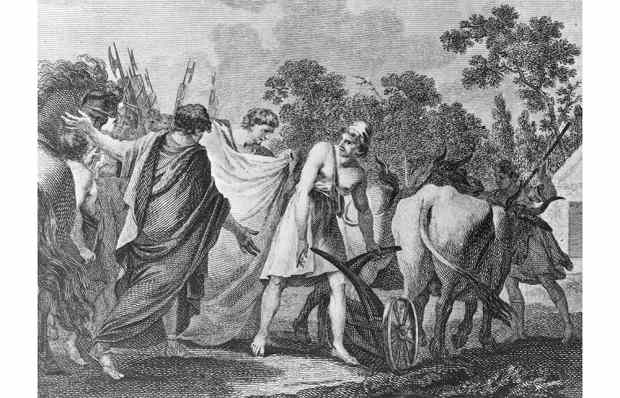The PM’s hero is the Athenian statesman Pericles, and a Periclean crossroads is now approaching.
According to the biographer Plutarch, Pericles’ influence begins during Athens’s golden age, when its power was expanding at the expense of Sparta, its rival city-state. Though an aristocrat, Pericles turned himself into a populist, but took care not become too familiar a figure. He was seen in public only when on political business and generally kept a low profile (as Boris was accused of doing in last week’s Spectator editorial).
Pericles then began to ‘borrow’ money on various pretexts, pouring it into public festivals, fees for public services and fabulous major building works (one of which was the Parthenon). This made him enormously popular but aroused the envy of enemies. Some claimed that he was squandering the city’s resources. Others, including comic playwrights, spread rumours about his relationships with women (Boris might sympathise). But Pericles could argue his corner. A rival said of him: ‘When I defeat him at wrestling, he disagrees, wins the argument — and even persuades the onlookers.’
So far, so Boris. But things turned more serious for Pericles when he led Athens into war against Sparta in 431 bc. (Parallels with Brexit?) Dreadful hardship ensued. At first, Pericles refused to fight Sparta by land and evacuated everyone inside the walls of Athens. But when people saw their farms pillaged by Spartan troops, their mood changed. Then, a devastating plague struck. The people turned against the man who sold them this adventure (as people might turn against Boris in a no-deal Brexit).
But Pericles stood firm. His weapon was oratory, and he gave the speech of his life. Confident he ‘knew what needed to be done and could put it into words’, as Thucydides put it, he persuaded the people to remain patient and keep him as leader. ‘He led the people rather than letting them lead him. He did not tell them what they wanted to hear… indeed, he was prepared to anger them by contradicting them.’ He told them they had approved the war, that there must be no negotiation with Sparta. After punishing him with a fine, they agreed that he was indeed the man to lead them.
The PM is facing his Sparta moment.
Got something to add? Join the discussion and comment below.
Get 10 issues for just $10
Subscribe to The Spectator Australia today for the next 10 magazine issues, plus full online access, for just $10.
You might disagree with half of it, but you’ll enjoy reading all of it. Try your first month for free, then just $2 a week for the remainder of your first year.














Comments
Don't miss out
Join the conversation with other Spectator Australia readers. Subscribe to leave a comment.
SUBSCRIBEAlready a subscriber? Log in